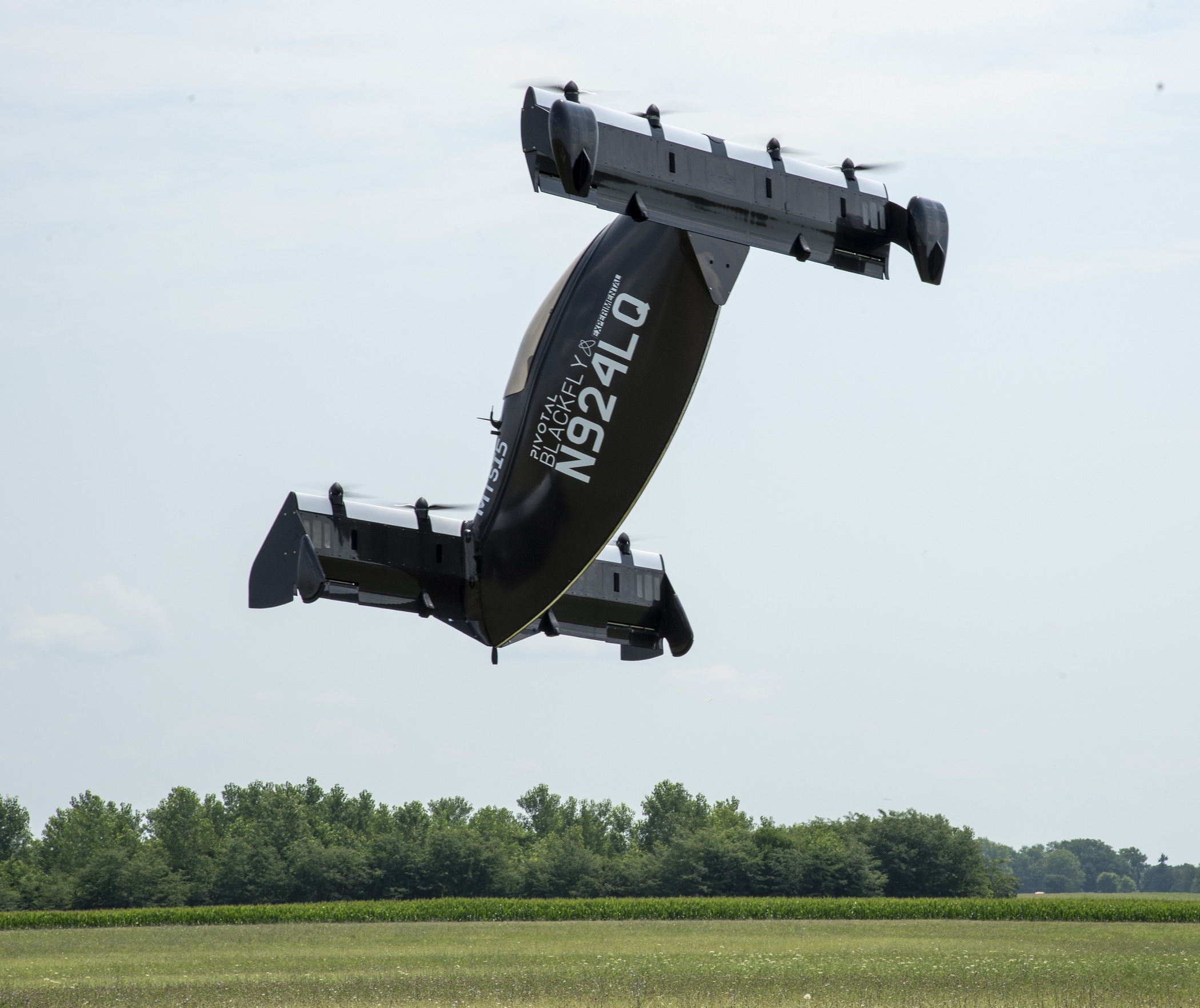U.S. Air Force moves forward with eVTOL integration: BlackFly tested in unmanned configuration
The U.S. Air Force, through its innovative arm AFWERX (part of the Air Force Laboratory – AFRL -), is intensifying its efforts in the development of future airborne capabilities. In collaboration with defense contractor MTSI, they are conducting a comprehensive evaluation of Pivotal’s BlackFly electric vertical takeoff and landing (eVTOL) aircraft.
This initiative, part of AFWERX’s Agility Prime program, seeks not only to evaluate the performance of the aircraft itself, but also to analyze the entire ecosystem surrounding it.
«We’re not just interested in the aircraft’s flying capabilities,» said Josh Lane, AFWERX flight test engineer. «We’re also looking at the infrastructure, including electric charging systems like the DANNAR battery energy storage system and the portable chargers provided by the original equipment manufacturers. We are assessing the overall flight operations in the context of Air Force and other stakeholder concepts of employment.»
A crucial aspect of these tests is the evaluation of the supporting infrastructure. The use of energy storage systems such as DANNAR, provided by another AFWERX partner, is critical to ensure the operability of these aircraft in remote or challenging environments.

The BlackFly, normally piloted, is being tested in unmanned configuration to explore its potential in a variety of missions, from logistics and material transport to emergency response and surveillance.
According to Jacob Wilson, acting head of AFWERX’s Agility Prime branch, «We are exploring a wide range of military applications for these vehicles, with the goal of accelerating commercial adoption of these innovations and ensuring a strong industrial base for these technologies.»
See also: Joby delivered its first eVTOL air taxicab to the USAF
Testing is being conducted at the National Advanced Air Mobility Center of Excellence (NAAMCE), a facility specifically designed to advance the development and integration of advanced air mobility technologies. This center has an authorization certification for unmanned flight operations, allowing for a wide range of testing and analysis.
While the potential of eVTOLs is evident, there are still challenges to overcome. Range, payload capacity and battery endurance are critical factors that will determine the viability of these aircraft on the battlefield. In addition, the safe integration of these vehicles into civil and military airspace is another area that requires attention.
AFWERX’s Agility Prime program represents a significant step toward transforming military air mobility. The results of these tests will be crucial in determining the role eVTOLs will play in the future of combat.

/https://aviacionlinecdn.eleco.com.ar/media/2024/08/eVTOL-BlackFly.1.jpg)
Para comentar, debés estar registradoPor favor, iniciá sesión